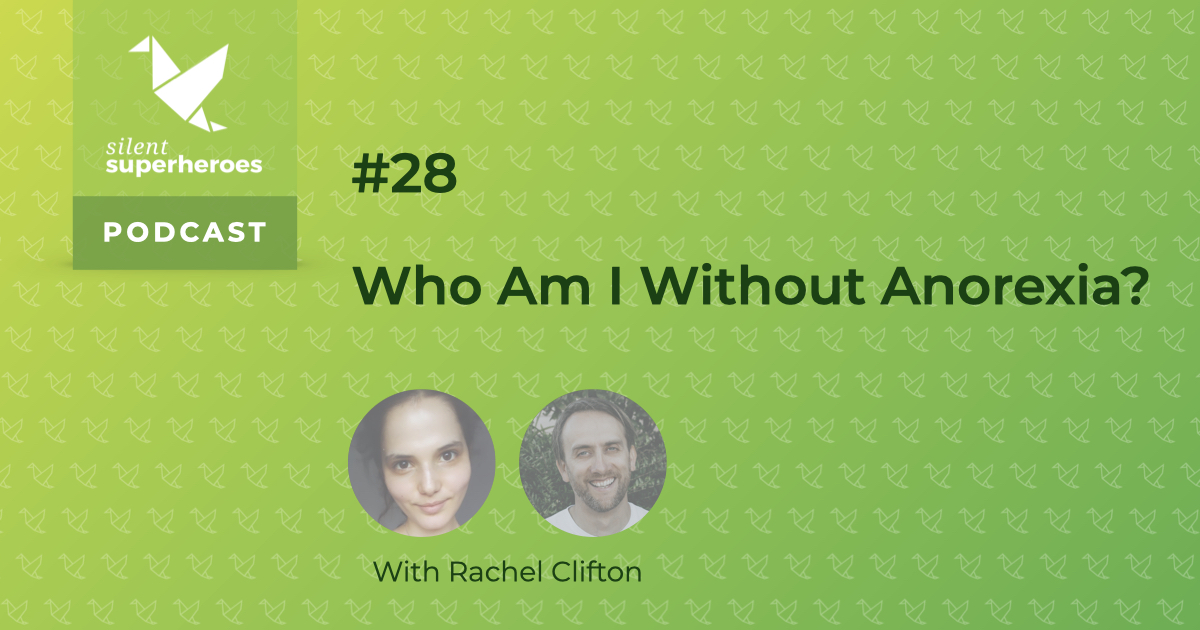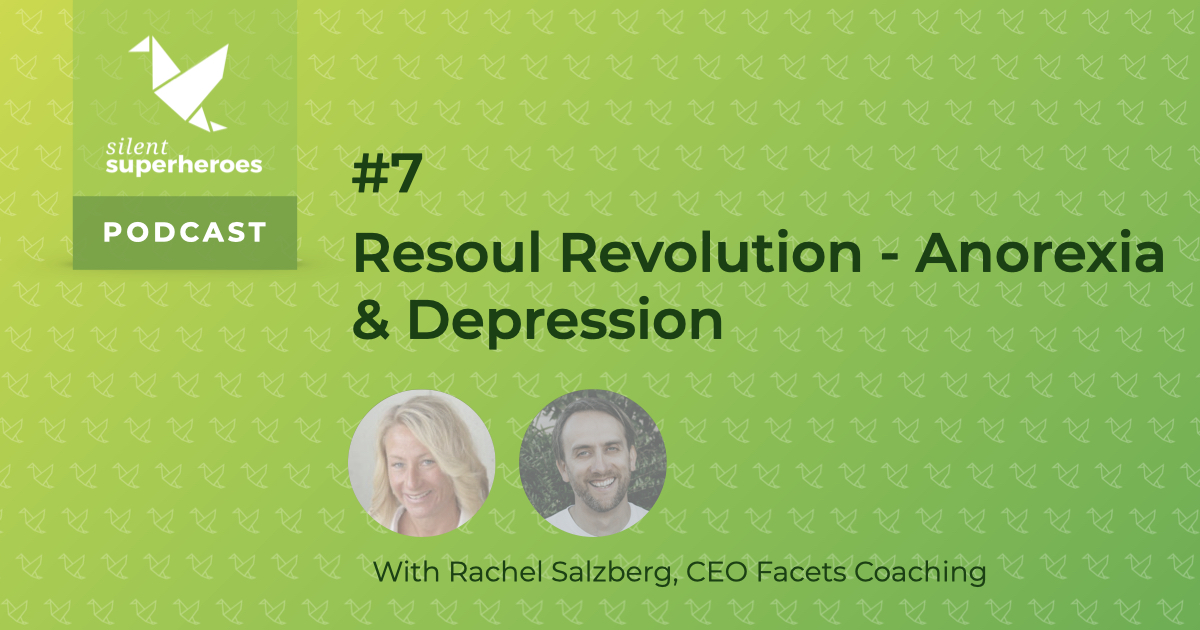It’s a question that many people with chronic illnesses must face. Answering that question pulled Rachel back to living her life after four years of hospitalization. As a young teenager, she struggled to find her own identity and place in the world. It was that struggle that lead to her to her pre-anorexia and later anorexia diagnosis. Controlling her food intake was a way to control her emotions and a cry for help. Eventually deemed “treatment resistant,” she focused more on her education and found her way back to her passions and life.
Listen To Episode 28
Podcast: Play in new window | Download (Duration: 54:41 — 28.6MB)
In this episode of Silent Superheroes, we learn what landed Rachel in a psychiatric institution. She explains how she navigated multiple psychiatric facilities and medical interventions. We hear how her story evolved once she was at college and living on her own. Finally, we’ll hear how support from friends and an intervention helped to pull her out of her lowest point. From there, finding a good therapist and doing the work were key to her recovery.
About Anorexia
Anorexia is an eating disorder characterized by an abnormally low body weight, an intense fear of gaining weight. People with anorexia place value on controlling their weight, in ways that tend to significantly interfere with their lives.
To prevent weight gain, people with anorexia usually severely restrict the amount of food they eat. They may control calorie intake by vomiting after eating or through misusing medications. They may also try to lose weight by exercising excessively.
Anorexia isn’t about food. It’s an extremely unhealthy and sometimes life-threatening way to try to cope with emotional problems. When you have anorexia, you often equate thinness with self-worth. Anorexia, like other eating disorders, can take over your life and can be very difficult to overcome. But with treatment, you can gain a better sense of who you are. You can return to healthier eating habits and reverse some of anorexia’s serious complications.
Getting Support
Remember, the people you hear on Silent Superheroes are sharing their opinions about mental health and mental illness. They are not giving advice. For that reason, please consult with your care provider before making a change to your treatment approach.
It’s important to take your mental health seriously. Consequently, if you need to speak to someone you can call 1-800-273-8255, or text crisistextline.org on 741741. Both provide 24×7 confidential counseling to people in the United States. Worldwide visit http://iasp.info/resources/Crisis_Centres/
Because you listened to the podcast, you can help others find it by leaving us a review on iTunes. Or if you don’t use iTunes, leave a review on your favorite podcasting service.



